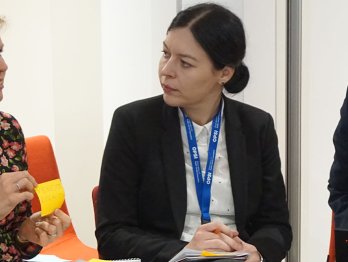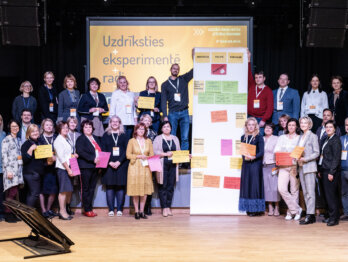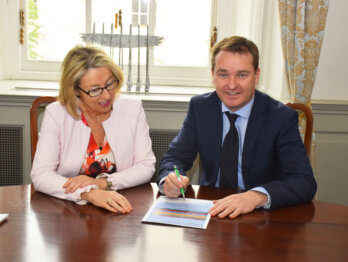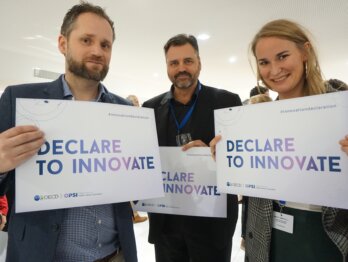Latvia accelerates innovation with the OECD Declaration on Public Sector Innovation
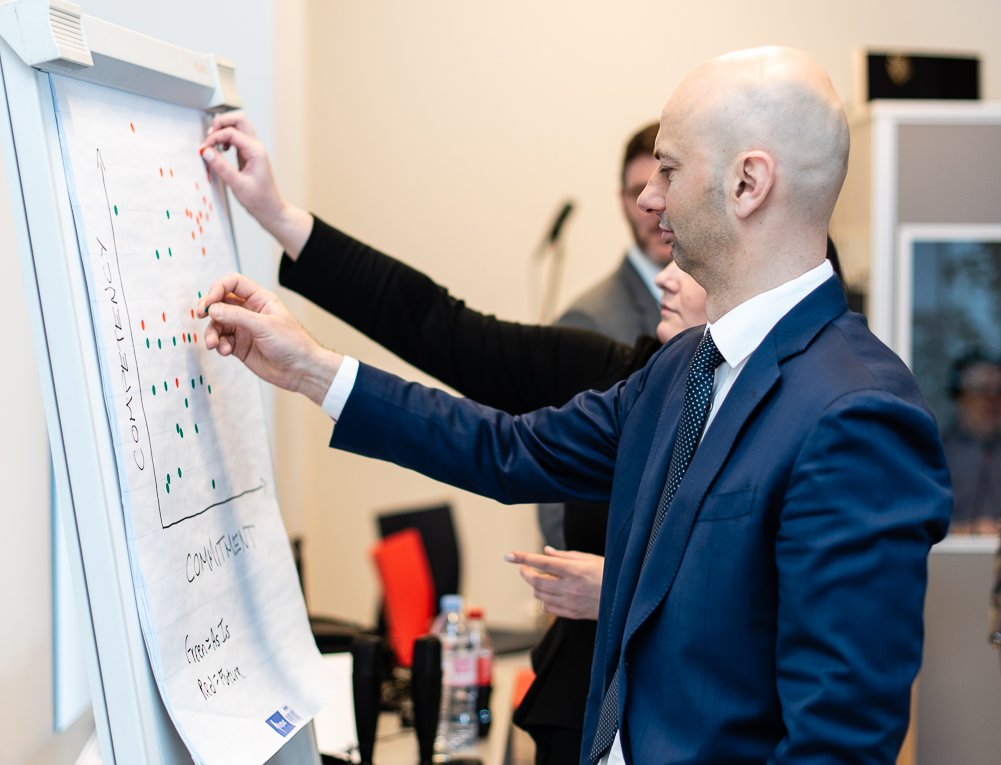
In May, 40 countries officially adopted the OECD Declaration on Public Sector Innovation. In the months since the formal adoption, countries are exploring how to use the OECD declaration to help boost their own public sector innovation agenda. Recently, the Irish government used the OECD Declaration to create their own Declaration on Public Service Innovation.
In Latvia, OPSI has been working with the State Chancellery and the recently created innovation labs #GovLabLatvia to adapt the OECD Declaration to their context.
Creating a shared understanding of Innovation
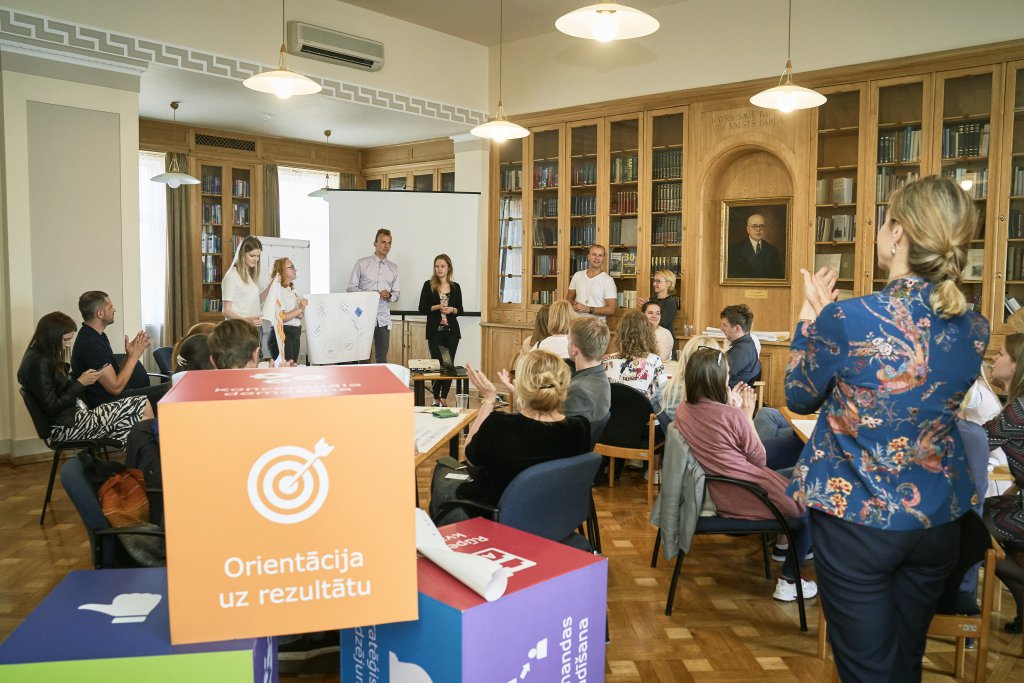
One hurdle to the adoption and scaling of innovation is the lack of a shared vocabulary. France, one of the inspirations for the OECD Declaration, used its own Manifesto for Public Sector Innovation to help normalise the language around innovation. Latvia has a similar challenge.
To help build a shared vocabulary, the State Chancellery and #GovLabLatvia have recently translated the OECD Declaration. In translating the OECD Declaration into Latvian and distributing it across the public sector, the language of innovation has increased reach, becomes more accessible, and better understood. Normalising the language of innovation is a critical step in the longer journey to build an innovative public sector.
Thus far, the OECD Declaration has been shared to top-level managers encouraging them to distribute it also among their colleagues. Additionally, the document is shared to an informal network of innovation enthusiasts in the Latvian public sector.
Top-Level Managers – Turning the five principles into action
From OPSI’s work in systems thinking and innovation systems, leadership is often seen as playing a critical role in enabling or hindering innovation within organisations and the innovation system. The State Chancellery, understanding this dynamic, organises seminars for top-level managers, including recent seminars about public sector innovation.
The State Chancellery has also declared that the theme of the 2019 Development Programme of Top-level Managers is “Innovation and Experimentation.” The participants of the programme are state secretaries and their deputies as well as heads (and deputies) of different state institutions. In total, this cohort totals around 180 top-level managers from 71 public sector institution.
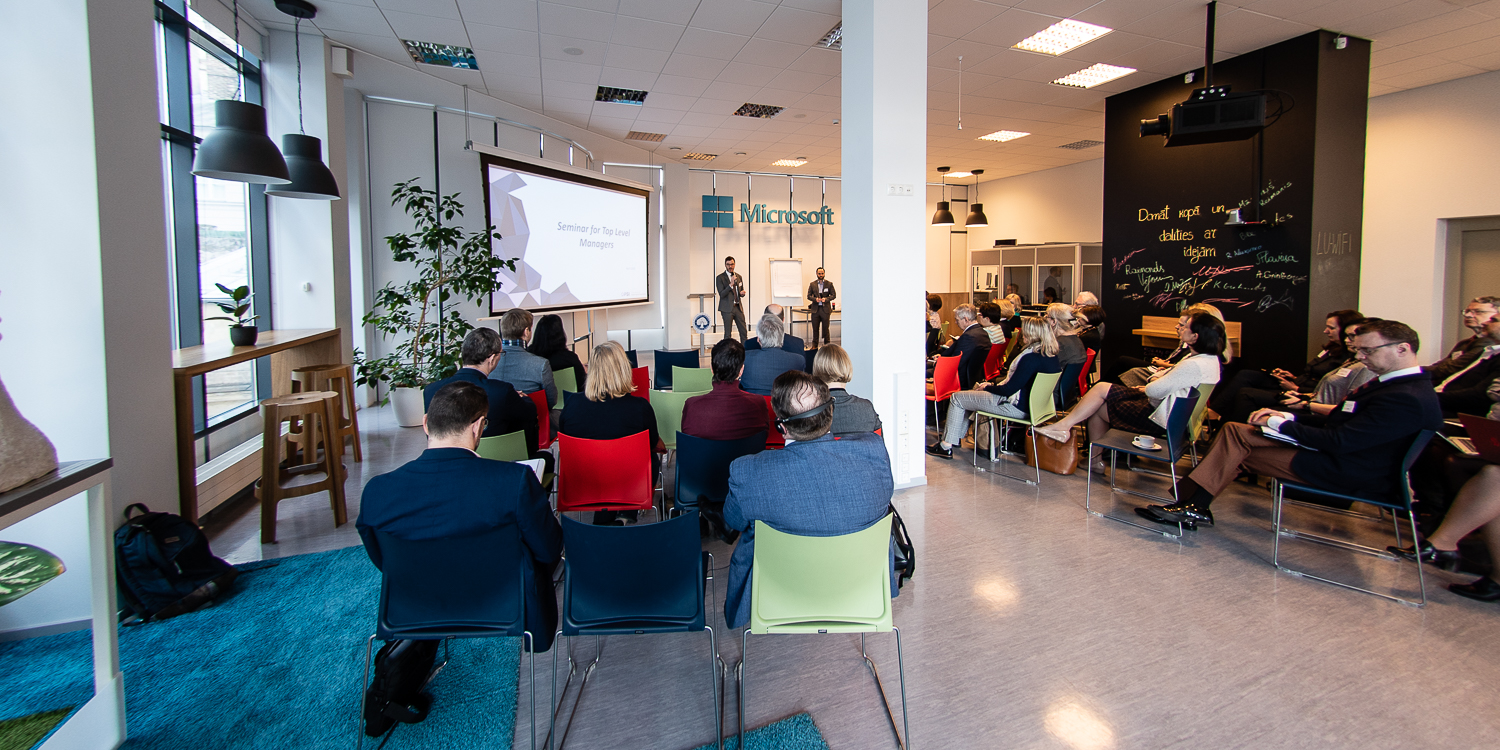
The programme is based on the belief that change management, implementation of innovation, and a positive impact on entrepreneurship environment is highly depends on knowledge, skills and experience of leaders from state institutions. Therefore, it is crucial to provide learning opportunities for the leaders. Combined with other development activities, multiple events (such as local and international experience exchanges, thematic seminars, workshops etc.) have also been organised in around the theme helping effectively and in a targeted manner bring new knowledge and trends to attention of top-level managers.
In June, OPSI and the OECD’s Public Employment Management (PEM) team worked with the State Chancellery and #GovLabLatvia to use the newly translated OECD Declaration to work with top-level managers on “innovation culture” and what that culture would like look in the Latvian government. The foundation of this discussion was rooted in the OECD Declaration’s five principles:
“The OECD Declaration is a set of five principles, and associated actions, that governments and public organisations can use to inform (or enhance) innovation and its management. These principles are:
- Embrace and enhance innovation within the public sector
- Encourage and equip all public sector servants to innovate
- Cultivate new partnerships and involve different voices
- Support exploration, iteration and testing
- Diffuse lessons and share practices”
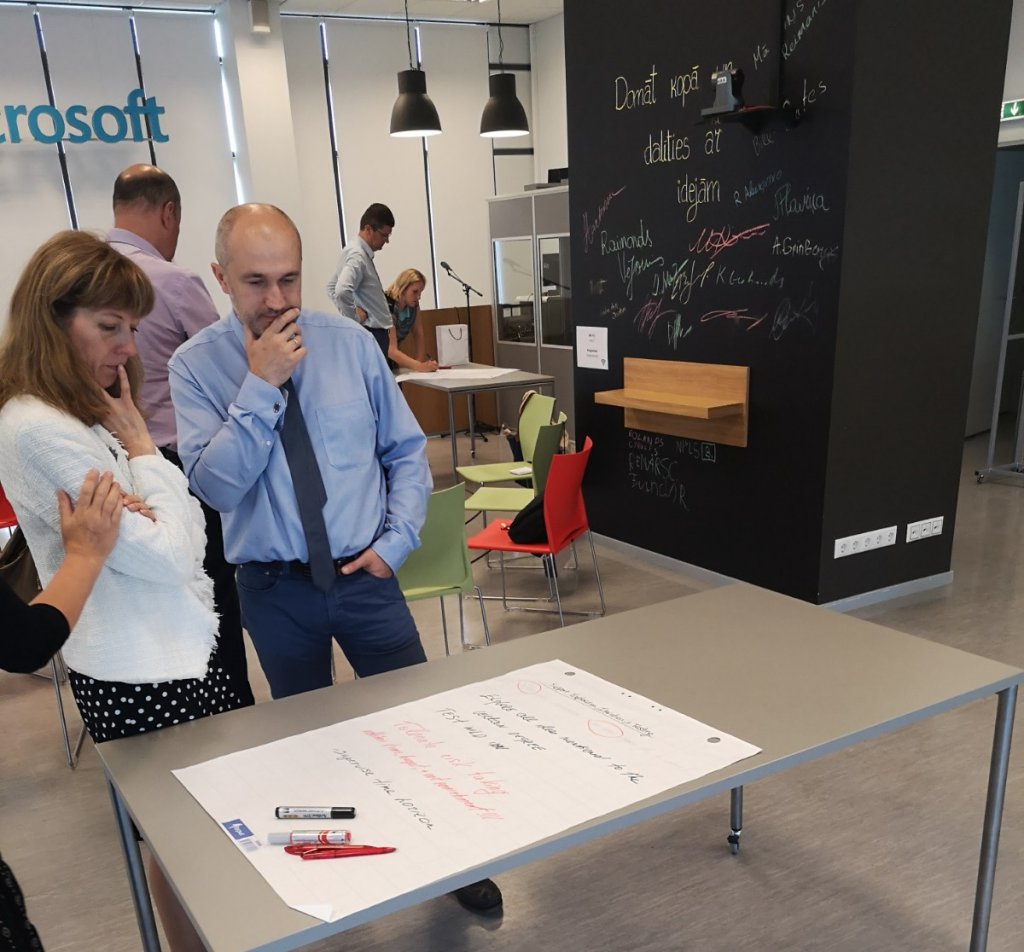
OECD and #GovLabLatvia developed a co-creation seminar to explore how those principles could manifest themselves in the Latvian public sector. Working independently, top-level managers were tasked with writing down actions and behaviours they felt they had both the interest and authority to take that would support the various principles.
As individuals recorded their ideas, it spurred the spreading of best practices as well as difficult conversations. For example, one organisation already held an award for innovation which others did not know about. Another top-level manager spoke of her experience in helping her teams create space for creative thinking and new ideas.
Additionally, one difficult conversation centred on “allowing more risk.” While this conversation did not yield specific actions, having an explicit conversation in a trusted space allowed for progress to be made. By engaging with the principles as individuals and collectively, it allowed for individual creativity while diffusing and sharing ideas of what is possible as well as the good things that are already happening.
The next step in this process is to create an “innovation manifesto” which gives concrete ideas and examples (both within Latvia and internationally) within each principal. By turning aspirational principles into actions, it creates a realistic list of concrete steps that leaders can take to help promote and drive innovation.
Building Innovative Capacity

Besides Latvia’s work with the OECD Declaration, OPSI and the PEM teams partnered together with the European Commission and the State Chancellery of the Latvian Government through the European Commission’s Structural Reform Support Services (SRSS) to support #GovLabLatvia. This work stems from the Public Sector Reform Plan 2020 to become a more effective, responsible, and flexible public sector. The primary focus of the project is to provide support to the State Chancellery and the newly formed innovation labs. These labs are helping accelerate the adoption of innovative practices and innovation capacity while providing a safe space to experiment with new methods such as agile and design thinking.
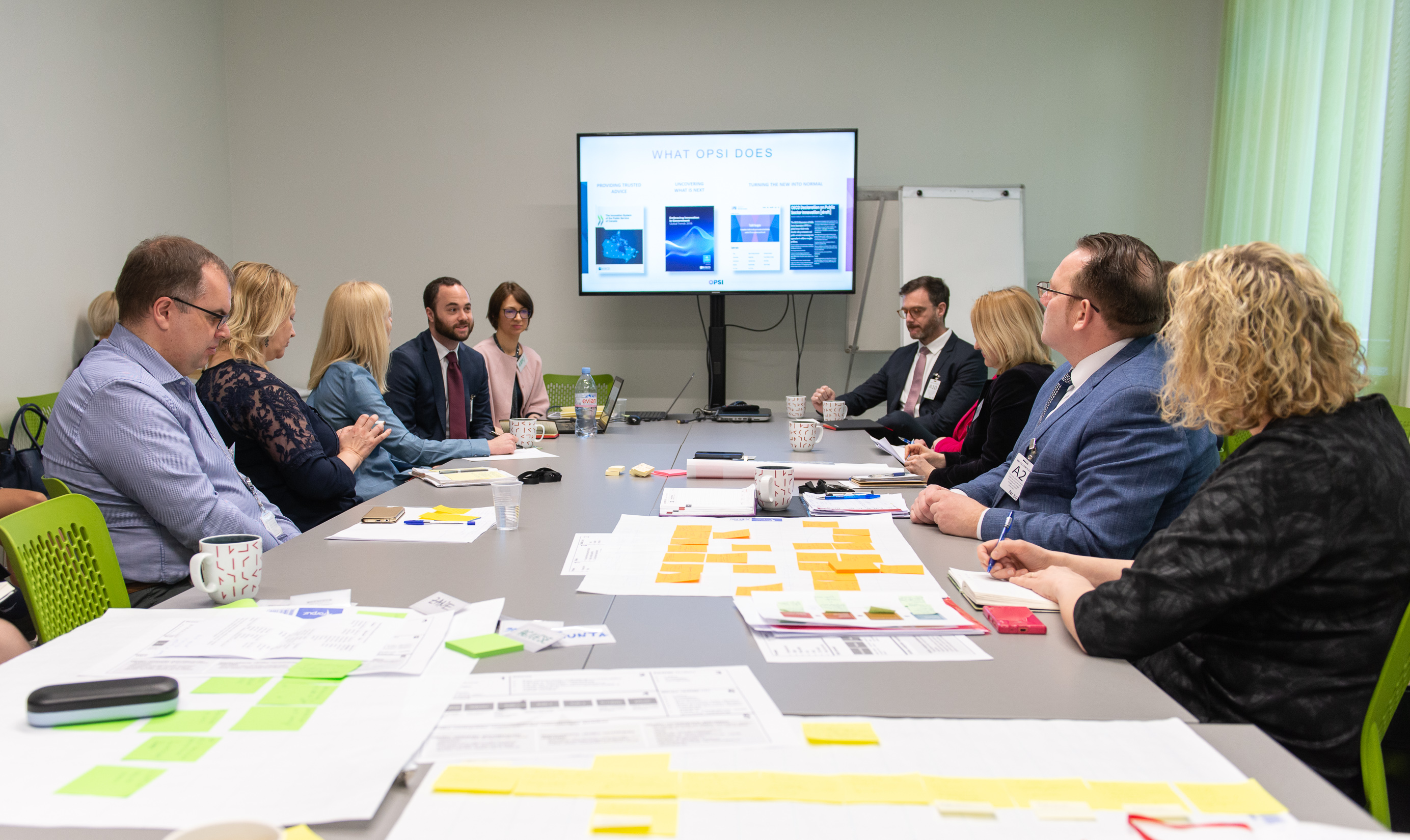
To #GovLabLatvia, the principles of the OECD Declaration are not just aspirational, but how they work and operate. OPSI is excited to share more about #GovLabLatvia and its work as the partnership continues to grow.
While the OECD Declaration helps set a strong foundation, it is all about adaptability to context and making it your own. Are you or someone you know using the Declaration to help boost public sector innovation? We would love to hear about it. Leave a comment below or e-mail us at [email protected]. To find out more about how countries are using the Declaration, follow this blog and @opsigov on Twitter.


